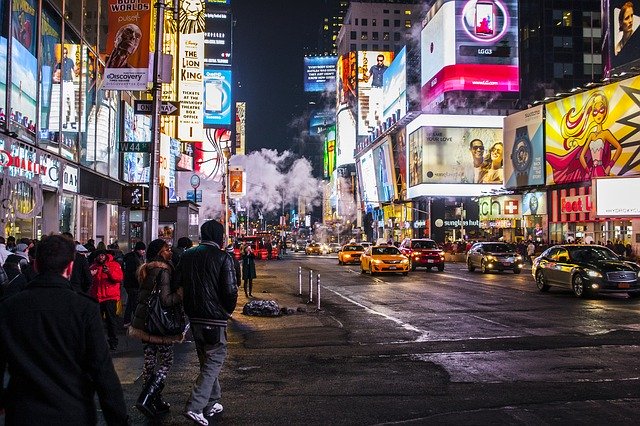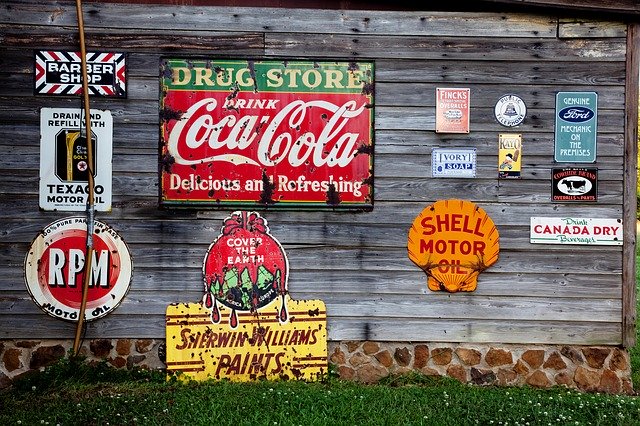This event advertisement guide will walk you through the essential elements of promoting an event and spreading the word.
The date is set. The event is arranged. Now all you need to do is fill those seats. That’s where event advertising comes in!
You put everything you have into planning the best event you can. You delivered on time, on budget and on brief but your efforts could all be in vain if nobody comes. The old adage ‘build it and they will come’ was coined long before the events industry so you have work to do before you can sit back and enjoy the show.
Event advertising is exactly what its name implies, the practice of advertising your event. It means exploiting every channel possible to maximise coverage, spread the word and make sure your event is a sellout.
We may have arranged the ultimate event. We may have booked top talent, hired an amazing venue, organised sumptuous catering and have all the staff and support necessary. We may have delivered our brief to the letter yet all that effort will be for nothing if nobody turns up. Not only will you or your client be facing a financial loss, it won’t do your brand or reputation much good either.
For an event to be a success on every level, it has to be popular. You don’t have to sell every ticket but you need enough attendance to make the event look and feel popular, create the right atmosphere and make those that do attend feel like they are at an exclusive event. All those things and more are why event advertising is so important.
Learn more about the role advertising plays in event planning with our guide to event management.

We could write for days on just the subject of successful event advertisement, but we won’t. Instead, we will provide the most important elements you need to know in order to successfully advertise an event.
You will already have a good idea of the type of person you’re trying to attract from the initial event brief. Bear this in mind when advertising your event and have it at the forefront of your mind from this moment on.
Consider where the target demographic can be found, what advertising and communication mediums they might use and the language and style of communication that will resonate well.
If your target audience is high earning corporate forty somethings, a Snapchat advertising campaign won’t reach them. Similarly, if your target is tweens, placing a half-page ad in a broadsheet isn’t going to work either. Use the most appropriate channels for the audience to maximise its potential.
The website is the cornerstone of your event advertising. Whether it’s a landing page or full website, it needs to be ready to go live, provide all the information required for readers to make a buying decision and then a short path to purchase. Use graphics, use calls to action and make sure your website loads quickly, works on mobile and has the capacity to cope with very high demand.
The internet is full of websites that list events. Use them to your advantage. Once the event website is up and running, list it everywhere you can. Websites such as The List, WeGotTickets, Billetto, Ticketea, Eventbrite fit the bill. There are hundreds of these sites. Pick the top 10 or 20 and make sure you’re on them all.
Email still has an important role to play in event advertising so make sure it’s part of your marketing mix. Target your email list carefully and make sure to craft a compelling email that shows your event off at its best.
Bearing your target market in mind, social media is vital in any event advertising campaign. Consider the channels your target will use and make sure your event is visible on those platforms. The corporate audience would be most likely to use LinkedIn and Facebook while younger audiences will use a wider mix of channels.
Back up your event advertising efforts with a steady stream of good quality content. Variety is key here, create graphics, blog posts and articles, shoot videos and cover the mediums your target market will most relate to. Place your content on websites that also appeal to your target.

Here are some tried and tested tips around event advertisement. Feel free to use some or all to promote your own event.
We sometimes find it useful to show how a big brand has used event advertising to great effect. That way you see the advice in action while gaining valuable insight into how a well-crafted advertising campaign can work.
Bombay Sapphire hired Creative Pro in Poland to create The Grand Journey. It included top class food with a train journey to experience the lifestyle the brand wants to associated itself with. If anything sells a lifestyle, a luxury trip on a train with fantastic food and cocktails using Bombay Sapphire is it!
View this post on Instagram
Experiential activations are an installation that provokes interaction. In this case, airline JetBlue were promoting a new route between Palm Springs and New York. It used a block of ice with items embedded inside and offered the chance for passers-by to use whatever they had with them to break a prize free. If they succeeded, they got to keep the prize.
Event advertising and promotion is a huge subject and will take as much planning and execution as the event itself. The key lessons here are to know your audience so you can pitch the advertising effectively, start early and gradually build up the campaign right up to the day itself.
If you have a younger audience, hit social media hard and use influencers to best effect. Forward planning isn’t quite so important here as they live more in the now. If you’re dealing with older audiences, consider what they do, where they go, what they read and use all of that in your mix.
Once you begin event advertising, it doesn’t stop until the night. Pace yourself and ensure you have the resources necessary to maintain efforts until the event. That way you stand the greatest chance of a sellout event!